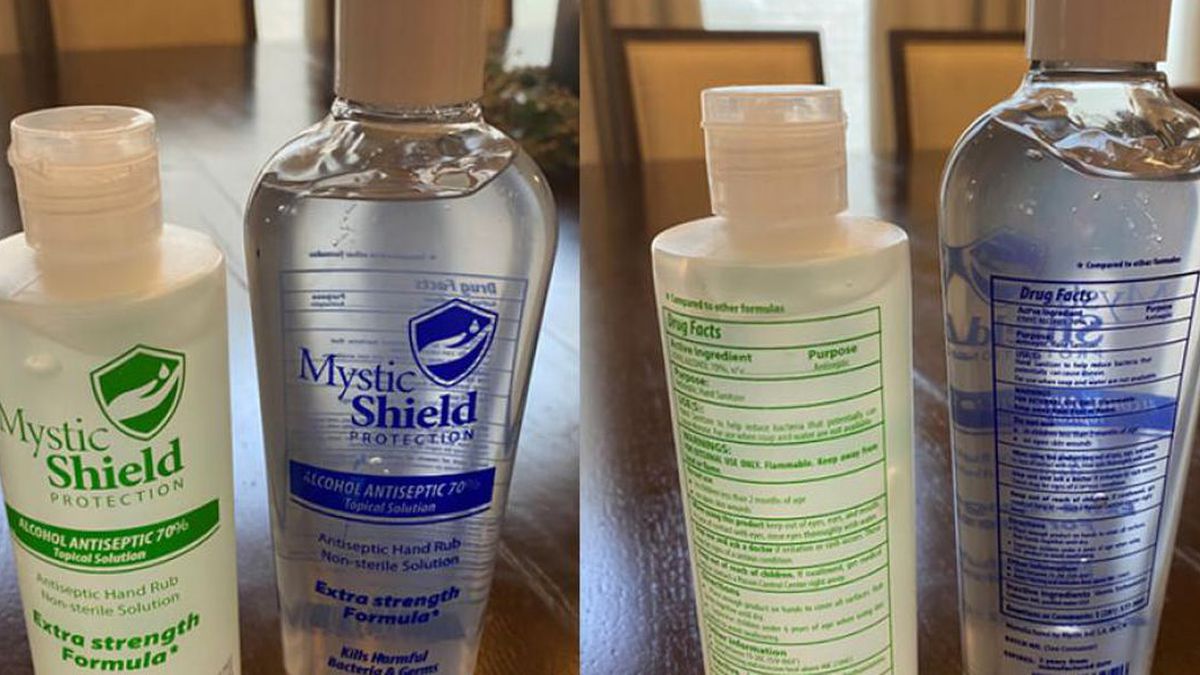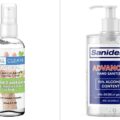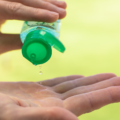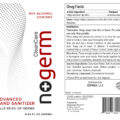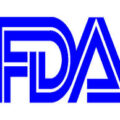The U.S. Food and Drug Administration (FDA) has seen a “sharp increase” in hand sanitizer products from Mexico that are contaminated with methanol, which can be toxic when absorbed through the skin or ingested. The FDA says it is aware of adults and children who have recently died, been blinded or hospitalized after ingesting hand sanitizer products contaminated with methanol, also known as wood alcohol.
“Methanol is not an acceptable active ingredient for hand sanitizers and must not be used due to its toxic effects. FDA’s investigation of methanol in certain hand sanitizers is ongoing,” the FDA said in a statement.
In Arizona, 16 people who were hospitalized in June for toxic alcohol exposure admitted to drinking hand sanitizer. Six others suspected of doing the same also were hospitalized but denied drinking hand sanitizer, according to the Arizona Poison and Drug Information Center.
“No amount of methanol should be found in hand sanitizers. Methanol can be extremely toxic, which is why we are seeing such an increase in hospitalizations,” Steve Dudley, director of the center, said in a statement.
The New Mexico Department of Health also issued a statement last month warning that three people died and one person was blinded from methanol poisoning after drinking hand sanitizer. In all, seven people drank hand sanitizer containing methanol, according to the release, which was based on cases reported to the New Mexico Poison Control and Drug Information Center over several weeks in May.
The FDA recently expanded a consumer safety alert warning of possible toxic methanol contamination in 14 hand sanitizer products manufactured in Mexico. In June the FDA issued an initial consumer alert for nine products made by Eskbiochem SA de CV that had tested positive for methanol. Five more products recently were added to the FDA warning.
5 New Hand Sanitizers Subject to New FDA Safety Warning
Hand Sanitizer Gel Unscented 70% Alcohol, manufactured by Grupo Insoma, S.A.P.I de CV
(*NDC: 75744-0200-3, 75744-0200-4, 75744-0201-5, 75744-0202-1, 75744-0250-1, 75744-0250-2, 75744-0500-1, 75744-1000-1, 75744-1000-3, and 75744-1001-1)
Mystic Shield Protection hand sanitizer, manufactured by Transliquid Technologies (NDC: 75477-435-02, 75477-435-10, 75477-435-12, 75477-435-25, 75477-435-50, and 75477-534-10)
Bersih Hand Sanitizer Gel Fragrance Free, manufactured by Soluciones Cosmeticas SA de CV (NDC: 75165-003-02, 75165-004-01, 75165-005-01, 75165-006-01, 75165-008-01, 75165-250-01, 75165-600-01)
Antiseptic Alcohol 70% Topical Solution hand sanitizer, manufactured by Soluciones Cosmeticas SA de CV (No NDC listed)
Britz Hand Sanitizer Ethyl Alcohol 70%, manufactured by Tropicosmeticos SA de CV (NDC: 76676-402-01 through 77676-402-20)
*National Drug Code (NDC) is a unique identifier assigned to drug products, including hand sanitizers.
If you have purchased these hand sanitizers, the agency recommends you stop using them immediately and dispose of the hand sanitizer in “appropriate hazardous waste containers.” Do not flush them down the toilet or pour them down the drain, the FDA advises.
Transliquid Technologies, one of the subjects of the latest FDA safety alert, issued a voluntary recall on July 2 of all Mystic Shield Protection hand sanitizer packaged in 8.45 ounce (250 ml) bottles. The firm’s independent testing confirmed the presence of methanol. Mystic Shield Protection hand sanitizer was distributed between May 21 and June 30 to select wholesale and retail customers in California, Louisiana, Massachusetts and Texas. Consumers with questions regarding this recall can contact Transliquid Technologies by phone at 281-377-5845 or by email at memob@transliquidtechnologies.com.
According to FDA, it remains vigilant and will continue to take action when quality issues arise with hand sanitizers. The agency is especially concerned with:
- The dangers of drinking any hand sanitizer under any conditions. While hand sanitizers with possible methanol contamination are more life-threatening than those that are not contaminated, FDA urges consumers not to drink any of these products.
- Certain hand sanitizers that may not contain a sufficient amount of ethyl alcohol or isopropyl alcohol.
- Hand sanitizers that are sold or offered for sale with false and misleading, unproven claims that they can prevent the spread of viruses such as COVID-19, including claims that they can provide prolonged protection (e.g., for up to 24-hours).
- Products that are fraudulently marketed as “FDA-approved” since there are no hand sanitizers approved by FDA.
- Products packaged to appear as drinks, candy or liquor bottles, as well as products marketed as drinks or cocktails because their appearance could result in accidental ingestion or encourage ingestion. Children are particularly at risk with these products since ingesting only a small amount of hand sanitizer may be lethal in a young child.
FDA is aware of reports of adverse events associated with hand sanitizer products. FDA encourages health care professionals, consumers and patients to report adverse events or quality problems experienced with the use of hand sanitizers to FDA’s MedWatch Adverse Event Reporting program (please provide the agency with as much information as possible to identify the product):
Symptoms of Methanol exposure
Consumers who have been exposed to hand sanitizer containing methanol and are experiencing symptoms should seek immediate treatment for potential reversal of toxic effects of methanol poisoning, according to the FDA.
The Centers for Disease Control and Prevention (CDC) says that it can take between one hour and three days for adverse health effects from methanol poisoning to become apparent. It also cautions that methanol toxicity worsens over time, and adverse effects can become more severe if left untreated.
“Initial adverse health effects due to methanol poisoning include drowsiness, a reduced level of consciousness (CNS depression), confusion, headache, dizziness, and the inability to coordinate muscle movement (ataxia). Other adverse health effects may include nausea, vomiting (emesis), and heart and respiratory (cardiopulmonary) failure,” according to the CDC.
In response to COVID-19, the FDA reminds people to wash their hands using soap and water for at least 20 seconds (especially after going to the bathroom, before eating and after coughing, sneezing or blowing one’s nose) to prevent the spread of the coronavirus. If soap and water is not available, the CDC suggests using a hand sanitizer that contains at least 60 percent ethanol to kill most disease-causing germs. Anything less than that may not work as well “for many types of germs,” and could “merely reduce the growth of germs rather than kill them outright,” the CDC says.
Hand sanitizer works best when used correctly. Be sure to apply enough hand sanitizer to cover the entire surface of both hands. Rub the hand sanitizer into your hands (paying special attention to the fingertips) until your skin is completely dry; it should take about 20 seconds. READ: Does Hand Sanitizer Repel Mosquitoes
9 Hand Sanitizers Subject to Prior FDA Safety Warning Made by Eskbiochem SA de CV
All-Clean Hand Sanitizer (NDC: 74589-002-01)
Esk Biochem Hand Sanitizer (NDC: 74589-007-01)
CleanCare NoGerm Advanced Hand Sanitizer 75% Alcohol (NDC: 74589-008-04)
Lavar 70 Gel Hand Sanitizer (NDC: 74589-006-01)
The Good Gel Antibacterial Gel Hand Sanitizer (NDC: 74589-010-10)
CleanCare NoGerm Advanced Hand Sanitizer 80% Alcohol (NDC: 74589-005-03)
CleanCare NoGerm Advanced Hand Sanitizer 75% Alcohol (NDC: 74589-009-01)
CleanCare NoGerm Advanced Hand Sanitizer 80% Alcohol (NDC: 74589-003-01)
Saniderm Advanced Hand Sanitizer (NDC: 74589-001-01)


